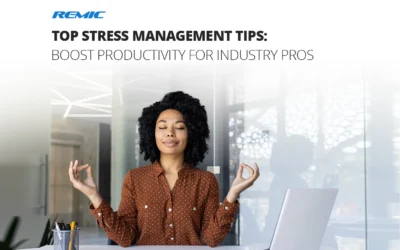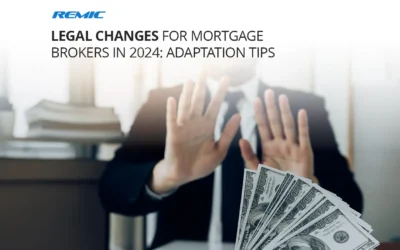Private Lending / Private Mortgages
Please note: information in this article is not meant to be legal advice on private lending, private investing, private mortgages or any other topic, and is in reference to Ontario only. REMIC is licensed by FSRA (formerly FSCO) as a provider of the mortgage agent course for licensing in Ontario and this information is for educational purposes only.
Private lenders are classified as individuals or groups of individuals who provide mortgage financing. These individuals have money to invest and have decided that mortgage financing offers a profitable rate of return. The typical private lender will deal with mortgage agents or brokerages and use those individuals/firms to locate potential clients.
A client requiring a private mortgage will generally not qualify through a prime or sub-prime lender. This client will normally have equity in his or her property and be able to obtain financing to a maximum of 85% LTV, depending on the area in which the property is located.
Private lenders will charge a higher rate of interest than prime and sub-prime lenders and will normally charge a lender’s fee. The profile of a typical private mortgage is an interest only mortgage with monthly payments and a one-year term.

Why become a private lender/private investor?
Private lending can be a fantastic way to maximize your returns and minimize your risks. But that comes with a caveat: you must know what you’re doing if you’re going to become a private lender. I got into private lending for that, among other reasons. Here are my reasons:
- Rates of return much higher than other similar investments. Rates of return can be 7% to 9% on first mortgages, and up to 15% on second mortgages. When I speak of similar investments, I mean other secured investments. Personally, I compare them to bonds, GICs and other low risk investments, however I compare them this way because I’ve been investing for years. Mortgages as investments can be very secure, but they can also be very risky. Why? Because mortgages are not all the same. When I say I invest in mortgages, what I’m really saying is that I lend money to borrowers who have demonstrated the ability to repay the mortgage (or are prepaying the mortgage payments), who have a marketable property in case I have to sell the property, and who have equity in that property to a great enough degree that I will be able to get my investment back if I have to sell the property. The mortgage is simply the way to secure the loan.
- Private lending is RRSP (and other registered funds) eligible. So, I can lend someone money via a mortgage and use my RRSP to fund that loan. That means I’m earning this high rate of interest for my retirement! You simply have to find one of the handful of trust companies that facilitate this type of investment, because banks do not. They’ll allow you to do a self-directed RRSP mortgage loan to yourself, as long as it meets specific criteria, but not in an arm’s length transaction.
- Short term investment. I won’t invest in a mortgage with a term over 1 year. Why? Because I’m relatively confident in what’s going to happen in the next year. The only exception to that strategy is when something completely out of the ordinary happens, such as COVID-19. In other words, by limiting my exposure to one year, I can re-evaluate the investment at the end of the term. Do I want to renew the mortgage (tell the borrower I’m willing to continue on for another one year term) or call it (tell the borrower I’m not renewing and want the mortgage repaid? My decision will be based on the borrower’s repayment history (have they missed or been late on any payments?), my needs (do I need the money back to do something else with it?), or my outlook (do I think housing values will go down, for example, thereby increasing my exposure?
- Risk tolerance. I’m a private lender because I know how to assess the risk in any given mortgage. However, and this is a BIG however, you can’t know everything. Someone may be using fraudulent documents. The market may tank and house prices nose dive. The house may burn down and the borrower may have not been insured (there are ways to mitigate this risk, but it’s still a risk). All lenders will have a loan go bad if they lend often and long enough. Private lending is no different. So, with that being said, I have to be willing to access the risk that I might lose some or all of my mortgage investment, even thought that risk is highly unlikely. Knowing this I can ask myself a simple question: can I handle losing money on one or more mortgages in return for the overall benefits of investing in mortgages? I know my answer. Do you know yours?
Who are my clients? Why should I lend money to someone who may have bad credit?
You’re probably asking yourself, why should I lend money to someone who might not be able to borrow from a bank? Aren’t they a poor risk? The answer is, they might be. Or they might be turned down by a bank because lending rules that banks have to follow are pretty tight for many people. Or they might have missed payments, or not be at their job long enough to qualify with a bank. There are a lot of reasons that good people can’t get a mortgage from a bank. In addition, they may have a first mortgage with a low interest rate and find that it’s not worth it to refinance that mortgage if rates have gone up, or if there is a penalty to break that mortgage.
That’s why you need to know what makes a mortgage a good risk as compared to a poor risk. Are the risks offset by the equity in the property? How can you mitigate those risks?
That’s where dealing with a licensed mortgage broker or agent will be invaluable.
What is the most important thing to consider in private lending? Exit Strategy.
It’s easy to lend money. Lots of people need money. BUT, you have to know how and when you’re going to get your money back. That is called an exit strategy. You or your broker must know how you will get your money back:
- if the borrower defaults, or
- when the term ends, or
- if you need the money back during the term
I explain your options below for a borrower default, but what about at the end of the term? You need to know if you are willing to renew the mortgage or if the borrower has the ability to pay you out either by refinancing or getting another private mortgage. If you’re not willing to renew because, for example, you need the money back, and the borrower can’t refinance because, for example, the property value has decreased, what will you do? You may be stuck having to renew that mortgage, or sell it to someone else at a discount (meaning you will potentially lose some money).
The same option exists during the term. Since you can’t force the borrower to repay you early (a mortgage is a contract), and if you need the money during the term, you may be able to sell the mortgage to another investor, but likely at a loss. So, be sure you likely won’t need your money back during the term as it may be difficult or expensive to get out of that investment.
Knowing what can happen is key in determining if you are comfortable lending your money to begin with.
How can I become a private lender/private investor?
Simple answer. You must:
- Be a mortgage broker or agent, or
- Invest through a mortgage brokerage
There are exceptions to those rules, but you can’t advertise or market that you have money to lend unless you are a licensed mortgage agent or broker. If you’re not licensed you can invest via a mortgage brokerage as they will find borrowers for you. If you are a mortgage broker or mortgage agent, be sure to check with your brokerage if they allow their brokers or agents to act as lenders. Not all brokerages will.
When investing through a mortgage brokerage the brokerage is required to give you full disclosure; That includes a document called the investor / lender disclosure, among other supporting documents. It is a legal requirement that you receive these documents before you are allowed to invest in the mortgage. If you don’t understand what you’ve been given, be sure to ask for clarification or take it to your own lawyer for clarification.

What rates of return can a private lender/private investor expect?
Rates of return for private lenders investing in private mortgages will range based on the risk associated with the mortgage, which includes everything that I mentioned above, and any other risks that the brokerage will tell you about. Generally speaking, you can earn a return two ways:
- Lender fee: this is an amount that you charge for lending the money in addition to the interest rate, and it is payable to you from the proceeds of the mortgage advance
- Interest rate: typically you will charge/earn 7% to 9% on a first mortgage, and up to 15% on a second mortgage. Rates are always negotiable based on what you want and what the borrower is willing to pay.
Keep in mind that if the borrower misses any payments or defaults and you can’t recover all monies owing that your rate of return may be lower, or, as discussed earlier, you may lose money.

What happens if the borrower defaults on the mortgage?
If the borrower defaults on your private mortgage (private lending, investing in mortgages), you have the same rights that any other mortgage lender has, such as a bank, because of the standard charge terms. Your lawyer (yes, you need a lawyer to close the private mortgage transaction, but the borrower will pay the legal fees), will ensure that the borrower agrees to the terms and conditions of the standard charge terms (the document that forms the contract) and that the mortgage is registered properly on title. So, if the borrower defaults by not paying the mortgage payment (or another contravention of the standard charge terms), you can start the power of sale process that will allow you to take possession of the property (not ownership like in a foreclosure, but control of the property) so that you can list it for sale and sell it.
Once sold, you will get paid what’s owing to you from the proceeds of the sale, after the other costs associated with selling the property, and any other mortgages that have precedence over yours (if you have a second mortgage, you have to pay the fist mortgage out first from the proceeds; this is one of the reasons second mortgage rates are higher because of the increased risk).
Conclusion: Private investing / private mortgages / private lending
Private lending can be a fantastic way to invest and get maximum returns for the risk involved, but only when done properly, and even then you might lose money. The best advice I can give you is to speak to a licensed mortgage broker or mortgage agent about what’s involved in private lending.
Consider all of the risks and rewards, and make your decision wisely with eyes wide open, which is great advice for any investment.




